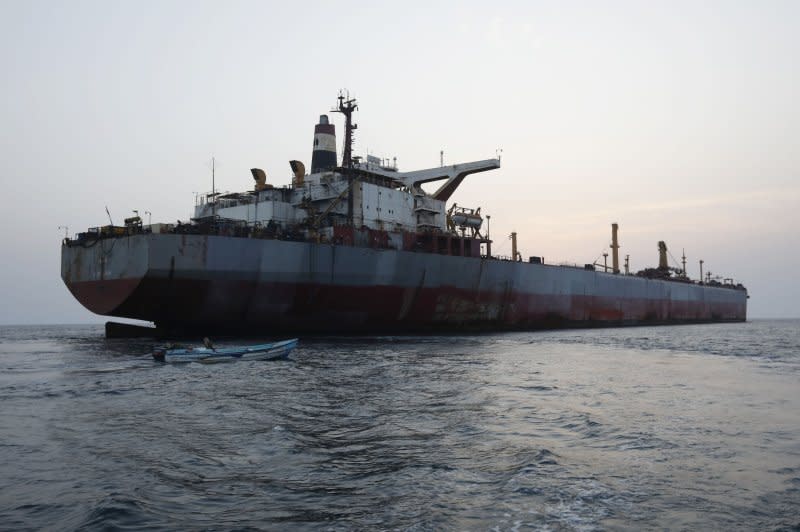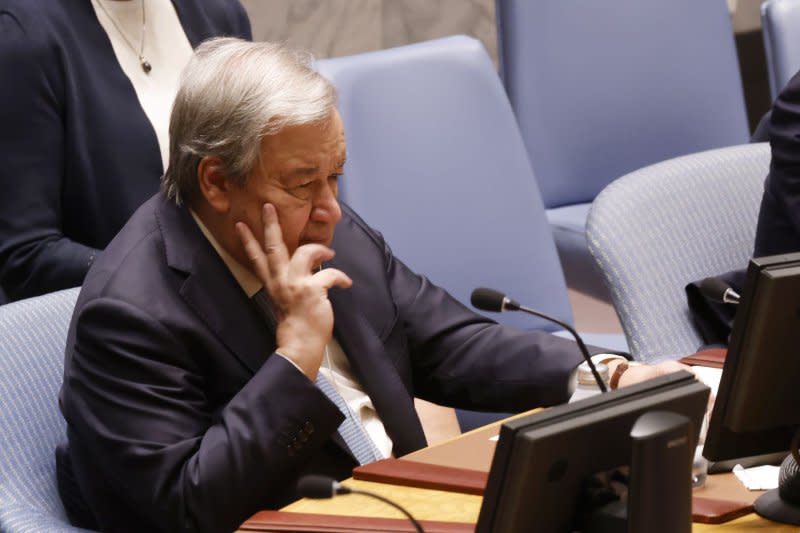United Nations begins transferring oil from FSO Safer in Red Sea

- Oops!Something went wrong.Please try again later.
July 25 (UPI) -- United Nations Secretary-General Antonio Guterres said on Tuesday that work is underway to transfer one million barrels of oil off the supertanker FSO Safer to other vessels.
Guterres called the vessel, which sits off Yemen in the Red Sea, a "ticking time bomb" and said the delicate operation is being taken on by the United Nations to help save the region from an environmental catastrophe if the ship deteriorated to the point where the oil is released into the sea.
"In the absence of anyone else willing or able to perform this task, the United Nations stepped up and assumed the risk to conduct this very delicate operation," Guterres said. "This is an all-hands-on-deck mission and the culmination of nearly two years of political groundwork, fundraising and project development."
The FSO Safer is essentially a floating storage facility but has not been maintained since 2015 because of the ongoing conflict in Yemen. The United Nations said it has since decayed to the point that its integrity is in question.
Officials said a spill from the FSO Safer, the fifth largest tanker in the world, would be four times as severe as the Exxon Valdez spill off the coast of Alaska in 1989.

Guterres said the decaying ship could lead to fishing communities being wiped out along with thousands of jobs if nothing is done.
"Whole communities would be exposed to deadly toxins," Guterres said. "Major ports including Hodeidah and Saleef would be forced to close indefinitely. Food, fuel and life-saving supplies for millions would halt. Water, coral reefs, sea life would be utterly devastated."
The United Nations said it would take 25 years for the fish stock to recover from a massive oil spill in the area while the cleanup cost would reach $20 billion.
Guterres said the United Nations will need about $20 million to finish the project, which includes cleaning and scrapping the FSO Safer and removing any remaining environmental threat to the Red Sea.

